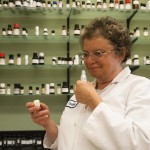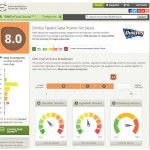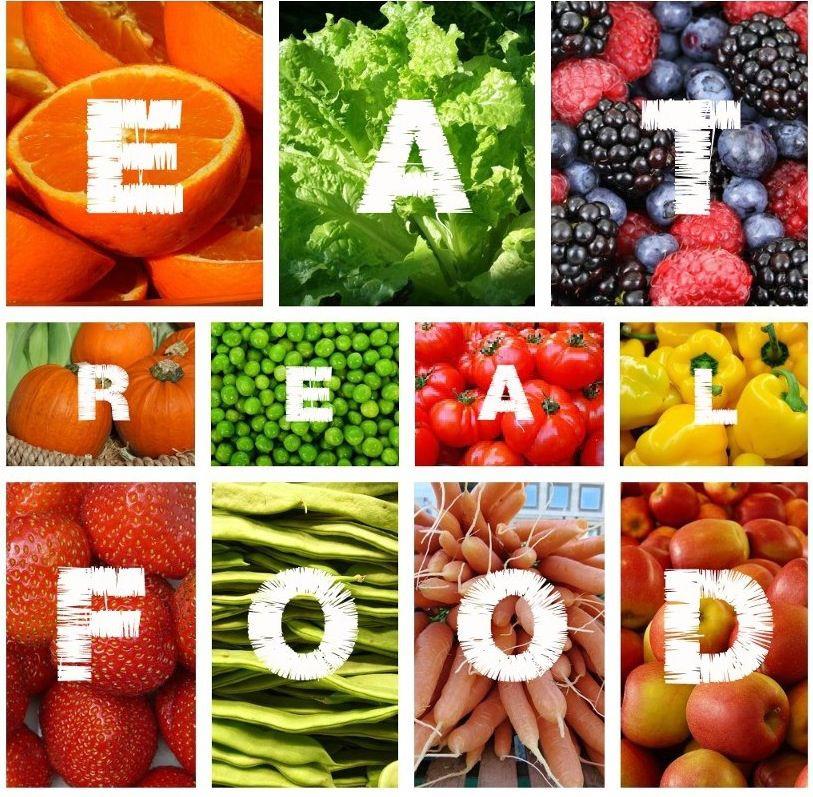By Mark Bittman, Michael Pollan, Ricardo Salvador and Olivier De Schutter
How we produce and consume food has a bigger impact on Americans’ well-being than any other human activity. The food industry is the largest sector of our economy; food touches everything from our health to the environment, climate change, economic inequality and the federal budget. Yet we have no food policy — no plan or agreed-upon principles — for managing American agriculture or the food system as a whole.
That must change.
The food system and the diet it’s created have caused incalculable damage to the health of our people and our land, water and air. If a foreign power were to do such harm, we’d regard it as a threat to national security, if not an act of war, and the government would formulate a comprehensive plan and marshal resources to combat it. (The administration even named an Ebola czar to respond to a disease that threatens few Americans.) So when hundreds of thousands of annual deaths are preventable — as the deaths from the chronic diseases linked to the modern American way of eating surely are — preventing those needless deaths is a national priority.
A national food policy would do that, by investing resources to guarantee that:
● All Americans have access to healthful food;
● Farm policies are designed to support our public health and environmental objectives;
● Our food supply is free of toxic bacteria, chemicals and drugs;
● Production and marketing of our food are done transparently;
● The food industry pays a fair wage to those it employs;
● Food marketing sets children up for healthful lives by instilling in them a habit of eating real food;
● Animals are treated with compassion and attention to their well-being;
● The food system’s carbon footprint is reduced, and the amount of carbon sequestered on farmland is increased;
● The food system is sufficiently resilient to withstand the effects of climate change.
Only those with a vested interest in the status quo would argue against creating public policies with these goals. Now weigh them against the reality that our current policies and public investments have given us:
Because of unhealthy diets, 100 years of progress in improving public health and extending lifespan has been reversed. Today’s children are expected to live shorter lives than their parents. In large part, this is because a third of these children will develop Type 2 diabetes, formerly rare in children and a preventable disease that reduces life expectancy by several years.

At the same time, our fossil-fuel-dependent food and agriculture system is responsible for more greenhouse gas emissions than any other sector of the economy but energy. And the exploitative labor practices of the farming and fast-food industries are responsible for much of the rise in income inequality in America.
We find ourselves in this situation because government policy in these areas is made piecemeal. Diet-related chronic disease, food safety, marketing to children, labor conditions, wages for farm and food-chain workers, immigration, water and air quality, greenhouse gas emissions, and support for farmers: These issues are all connected to the food system. Yet they are overseen by eight federal agencies. Amid this incoherence, special interests thrive and the public good suffers.
In the early days of the Obama administration, there were encouraging signs that the new president recognized the problems of our food system and wanted to do something about them. He spoke about the importance of safety, transparency and competition in the food industry.
Since then, the first lady has made childhood obesity her signature issue, elevating food on the national agenda. But as Michelle Obama raises awareness of healthy eating and tries to reform school lunch, she is struggling to undo the damage caused by outmoded agricultural policies that her husband has left largely undisturbed. The result is the spectacle of Michelle Obama warning Americans to avoid high-fructose corn syrup at the same time the president is signing farm bills that subsidize its production.
The contradictions of our government’s policies around food become clear as soon as you compare the federal recommendations for the American diet, known as MyPlate, with the administration’s agricultural policies. While MyPlate recommends a diet of 50 percent vegetables and fruits, the administration devotes less than 1 percent of farm subsidies to support the research, production and marketing of those foods. More than 60 percent of that funding subsidizes the production of corn and other grains — food that is mostly fed to animals, converted to fuel for cars or processed into precisely the sort of junk the first lady is urging us to avoid.
How could one government be advancing two such diametrically opposed goals? By failing to recognize that an agricultural policy is not the same as a food policy — and that the former does not necessarily contribute to public health.
Our food system is largely a product of agricultural policies that made sense when the most important public health problem concerning food was the lack of it and when the United States saw “feeding the world” as its mission. These policies succeeded in boosting the productivity of American farmers, yet today they are obsolete and counterproductive, providing billions in public support to an industry that churns out a surfeit of unhealthy calories — while at the same time undermining the ability of the world’s farmers to make a living from their land.
These farm policies have nourished an agricultural-industrial complex before which the president and the first lady seem powerless. The administration’s early efforts to use antitrust laws to protect farmers and consumers from agribusiness oligopolies were quietly dropped. Promises to regulate the use of antibiotics in animal agriculture — widely acknowledged as a threat to public health — resulted in toothless voluntary guidelines from the Food and Drug Administration.
When it came to regulating methane, one of the most potent greenhouse gases, the Environmental Protection Agency proposed stringent rules for the energy industry — and another voluntary program for agriculture, the single biggest emitter of the gas. And in February the president signed yet another business-as-usual farm bill, which continues to encourage the dumping of cheap but unhealthy calories in the supermarket.
These policies and the diet they sponsor threaten to undermine President Obama’s Affordable Care Act. The government now finds itself in the absurd position of financing both sides in the war on Type 2 diabetes, a disease that, along with its associated effects, now costs $245 billion, or 23 percent of the national deficit in 2012, to treat each year. The government subsidizes soda with one hand, while the other writes checks to pay for insulin pumps. This is not policy; this is insanity.
The good news is that solutions are within reach — precisely because the problems are largely a result of government policies. We know that the government has the power to reshape the food system because it has already done so at least once — when President Richard Nixon rejiggered farm policy to boost production of corn and soy to drive down food prices.
Of course, reforming the food system will ultimately depend on a Congress that has for decades been beholden to agribusiness, one of the most powerful lobbies on Capitol Hill. As long as food-related issues are treated as discrete rather than systemic problems, congressional committees in thrall to special interests will be able to block change.
But there is something the president can do now, on his own, to break that deadlock, much as he has done with climate change. In the next State of the Union address, he should announce an executive order establishing a national policy for food, health and well-being. By officially acknowledging the problem and by setting forth a few simple principles on which most Americans agree, the introduction of such a policy would create momentum for reform. By elevating food and farming to a matter of public concern rather than a parochial interest, the president can make it much more difficult for the interests of agribusiness to prevail over those of public and environmental health.
The national food policy could be developed and implemented by a new White House council, which would coordinate among, say, the Department of Health and Human Services and the USDA to align agricultural policies with public health objectives, and the EPA and the USDA to make sure food production doesn’t undermine environmental goals. A national food policy would lay the foundation for a food system in which healthful choices are accessible to all and in which it becomes possible to nourish ourselves without exploiting other people or nature.
As Obama begins the last two years of his administration facing an obstructionist Republican Congress, this is an area where he can act on his own — and his legacy may depend on him doing so. For the president won’t be able to achieve his goals for health care, climate change, immigration and economic inequality — the four pillars of his second term — if he doesn’t address the food system and its negative impact on those issues.
There are precedents for such a policy. Already a handful of states are developing food charters , and scores of U.S. cities have established food policy councils to expand access to healthful food. Brazil and Mexico are far ahead of the United States in developing national food policies. Mexico’s recognition of food as a key driver of public health led to the passage last year of a national tax on junk food and soda, which in the first year has reduced consumption of sugary beverages by 10 percent and increased consumption of water.
Brazil has had a national food policy since 2004. In the city of Belo Horizonte that policy — coupled with an investment of 2 percent of the local budget in food-access and farmer-support programs — has reduced poverty by 25 percent and child mortality by 60 percent, and provided access to credit for 2 million farmers, all within a decade.
A well-articulated national food policy in the United States would make it much more difficult for Congress to pass bills that fly in its face. The very act of elevating food among the issues the White House addresses would build public support for reforms. And once the government embraces a goal such as “We guarantee the right of every American to eat food that is healthy, green, fair and affordable” — it becomes far more difficult to pass or sign a farm bill that erodes those guarantees.
Think of the food system as something that works for us rather than exploits us, something that encourages health rather than undermines it. That is the food system the people of the United States deserve, and Obama, in his remaining time in office, can begin to build it.















